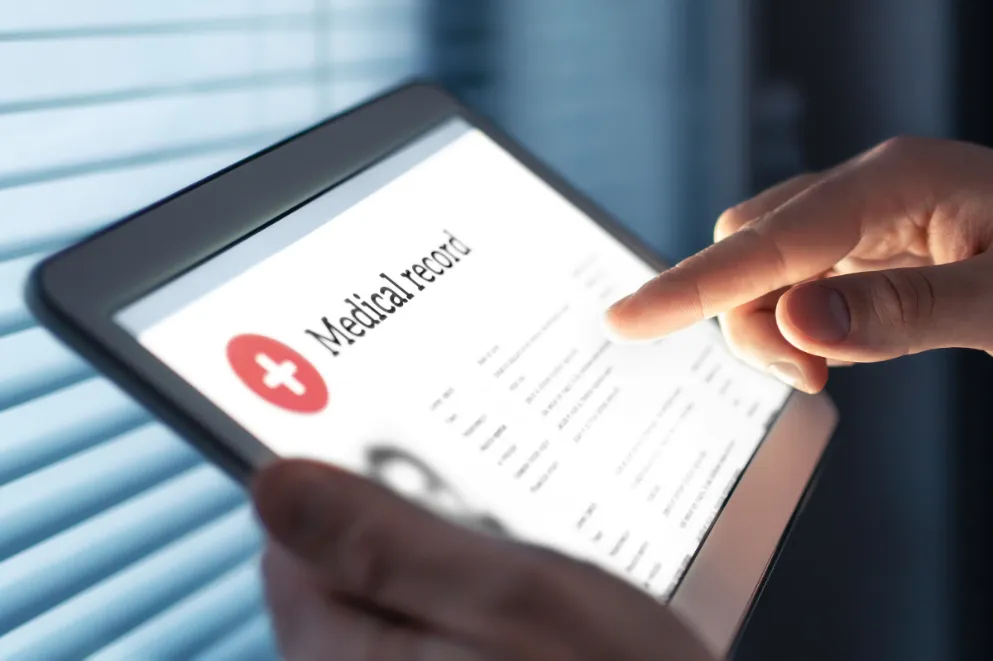Written and medically reviewed by Dorcas Morak, PharmD
Have you ever wondered about HIPAA and other regulations that aim to protect your private health information and rights? Understanding what protected health information (PHI) means can give you a clearer picture of how these regulations work to safeguard your health information. Let's dive deeper into this topic to gain a better understanding of PHI, what it includes, how it's used, and more.What is PHI?
Protected health information (PHI) or personal health information refers to the various types of data that healthcare professionals collect to identify individuals and provide appropriate care. In the United States, the Health Insurance Portability and Accountability Act (HIPAA) is the main law that governs the use, access, and disclosure of PHI.
According to HIPAA, PHI includes information about an individual's past, present, or future health, as well as the provision of healthcare and payment for healthcare services. Whether it's stored in paper-based records or electronic health records (EHR) systems, PHI provides a comprehensive overview of a patient's medical history, including their illnesses, treatments, and outcomes.
What is considered personal health information?
HIPAA lists 18 information identifiers that are considered PHI when combined with health information. These identifiers include names, addresses (excluding state), specific dates, phone numbers, fax numbers, email addresses, Social Security numbers, medical record numbers, health plan beneficiary numbers, account numbers, certificate or license numbers, vehicle identifiers, device identifiers, web URLs, IP addresses, biometric IDs, full-face photographs, and any other unique identifying characteristic.
How is PHI used?
Healthcare providers collect personally identifiable health information (PHI) to offer personalized care and make well-informed treatment choices. Additionally, clinical and research scientists rely on anonymized PHI to study health patterns and share their discoveries with the public.
Unfortunately, PHI is also a prime target for hackers and cybercriminals who aim to exploit and sell personal consumer data. They may even resort to ransomware attacks, holding healthcare providers hostage in exchange for financial profit.
What entities are covered under HIPAA?
HIPAA classifies organizations or individuals dealing with PHI as covered entities, which means they must adhere to security and privacy regulations. This classification applies to healthcare providers and insurers. Moreover, third-party entities like health information exchanges (HIEs) that handle PHI on behalf of covered entities are known as business associates and are also required to comply with HIPAA rules.
What are the privacy rules regarding protected health information (PHI) under HIPAA?
The HIPAA Privacy Rule is a set of regulations that healthcare providers must follow to protect patient’s personal health information (PHI). It ensures that federal safeguards are in place to secure this information and grants patients specific rights regarding their PHI.
According to the HIPAA privacy rule, healthcare organizations are prohibited from sharing PHI unless it falls under one of the following circumstances:
- It serves a public health purpose allowed by HIPAA.
- It is for research purposes, but only to reimburse costs.
- It is necessary for treatment and payment as permitted by HIPAA.
- It is part of a merger or acquisition involving a HIPAA-covered entity.
Furthermore, HIPAA gives individuals the right to make written requests to modify their PHI maintained by a covered entity. This empowers patients to have control over their own health information.
What is the difference between PII, PHI, and IIHI?
While it may be tempting to use PII, PHI, and IIHI interchangeably, it's crucial to understand their distinctions.
PII, which stands for personally identifiable information, encompasses both non-sensitive and sensitive data that can be utilized to identify individuals. It goes beyond health-related information and includes various contexts like tax details, credit card numbers, and Social Security numbers. Disclosure of PII can potentially result in harm.
PHI is specifically used in the medical field and must always comply with HIPAA regulations. The protection of PII, however, is mandated only in certain cases and not universally.
IIHI, or individually identifiable health information, refers to health-related data that can identify an individual. It's like PII but within a healthcare context. However, not all IIHI is protected under HIPAA. If the IIHI hasn't been transmitted or maintained by a HIPAA-covered entity, it doesn't qualify as PHI. In such cases, it may not be subject to protection, even if it contains sensitive information.
Are data from healthcare apps considered PHI?
Electronic health records (EHRs) and health information exchanges (HIEs) are where the worlds of PHI and IT come together. HIEs are created by vendors to make it easier for healthcare providers to access and share PHI while ensuring compliance with HIPAA rules. HIEs that handle PHI for covered entities are considered business associates and must comply with HIPAA regulations. If you're using a healthcare app, it should also be prepared to meet HIPAA requirements.
Understanding the concept of PHI and regulations like HIPAA is crucial to ensuring the privacy and security of your health information in healthcare settings.
RxLess – Designed with privacy in mind.
At rxless, we truly understand the importance of keeping your information safe and secure. Our privacy policy is built on the principle of collecting minimal data. That's why we don't require any personal information from you to take advantage of our free prescription discounts and coupons. And rest assured, any information we do collect is never shared, sold, or disclosed to anyone except for the purpose of assisting you with our services.
















